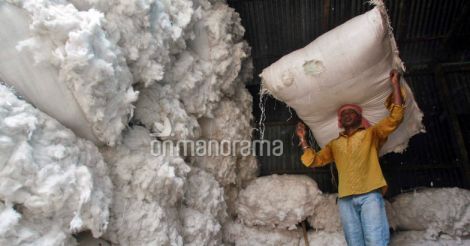The WTO ministerial meeting at Nairobi started off on a good note and had to be postponed by a day because the intended programmes could not be completed in four days. Finally, after announcing the 'Nairobi Package,' the meeting was formally concluded, claiming that commercial development had been achieved.
If we analyse the meeting, we can find that discussions on the Doha round, which India and other countries were expecting, have been buried and the agenda of the US has been implemented rather effectively.
The announcements in the Nairobi package:
No nation is to provide subsidies for exporting farmed products. Let everyone compete without a base price. Developed nations would end the subsidies soon and emerging nations would close them by 2018. Poorly developed nations would need more time to implement the proposal.
While these proposals would seem to make sense at first, we need to consume it with a pinch of salt. Nations such as the US, Japan and Australia are offering subsidies for farming in the domestic sector and not for exports. If these subsidies are reduced then products from India and Brazil can find markets there. This was presented at the Doha round. While we agreed to do away with local support prices, we demanded that domestic subsidies being offered be done away with in developed nations. While the talks on these proposals dragged from one venue to another, in Nairobi too, nothing was said about domestic subsidies while norms that are not helpful to us were announced. India should have asked more clarity on this.
A decision on food security, which would allegedly hamper free markets and which was taken at the Bali meeting in 2013, would continue until 2017. That is, we need to wait until 2017 to see ratification of our policies on food security.
While it was accepted in theory to impose protection for goods if their value drops beyond a point through effective market interventions, a decision could take years to implement.
While norms on cotton would help underdeveloped nations, India would not stand to benefit. The central government had spent Rs 17,000 crores in the last 12 months to support cotton producers, even though we are the largest producer of cotton in the world.
Service providers in underdeveloped nations would be offered a chance to offer business services in developed nations.
Import duties in IT would be removed to encourage exports. It is believed that the move would elicit business of Rs 13 lakh crores.
While it was claimed that the decisions would help underdeveloped or emerging nations, in reality our nation would not gain much; And we are responsible for this impasse. We did not have the strength to decide that our interests were more important than the danger of attracting the displeasure of the US.
The author is a former Additional Chief Secretary and former chair of the Rubber Board.




































































































































































































































































































































































































































































































































































































































 While norms on cotton would help underdeveloped nations, India would not stand to benefit.
While norms on cotton would help underdeveloped nations, India would not stand to benefit.
Disclaimer
The comments posted here/below/in the given space are not on behalf of Manorama. The person posting the comment will be in sole ownership of its responsibility. According to the central government's IT rules, obscene or offensive statement made against a person, religion, community or nation is a punishable offense, and legal action would be taken against people who indulge in such activities.